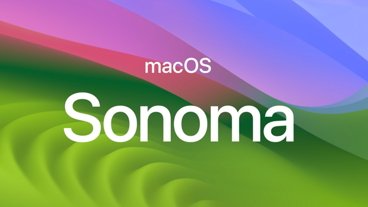Kaspersky Lab was not asked by Apple to advise on OS X security [u]
Kaspersky has begun analyzing the OS X platform at Apple's request, the company's chief technology officer, Nikolai Grebennikov, originally said in an interview with Computing. The Kaspersky executive has publicly called Apple out for not taking security seriously enough.
"Mac OS is really vulnerable, and Apple recently invited us to improve its security," Grebennikov said. We've begun an analysis of its vulnerabilities, and the malware targeting it."
Update: But in a later comment provided to Engadget, Kaspersky Lab said the quote from Grebennikov was "taken out of context by the magazine." It has asked that the original article be updated to reflect this.
"Apple did not invite or solicit Kaspersky Lab's assistance in analyzing the Mac OS X platform," the statement reads, going on to say that the analysis of OS X was "conducted independently of Apple."
In the original article, Grebennikov highlighted one specific security issue with OS X, in which Apple blocked Oracle from directly updating Java on the Mac. Instead, Apple handles the updates, and they typically arrive months after Oracle issues its own patches.
Mac-centric Java development is set to move to Oracle following the latest runtime updates built in-house at Apple. Apple dropped Java from the default installation of OS X 10.7 Lion after the company announced its plans to deprecate the software's release from the Mac platform.
In April, Oracle released its first Java Development Kit and JavaFX Software Development Kit for Mac users. They arrived one and a half years after Apple announced the depreciation of its own edition of Java for Mac.
Kaspersky's newfound partnership with Apple comes on the heels of the Flashback malware botnet, which was believed to have infected hundreds of thousands of Macs at its peak. The presence of Flashback was greatly diminished after Apple released a series of software updates to squash the malware, including a Java update and a separate removal tool.
Grebennikov cited the Flashback malware as "a huge sign that Apple's security model isn't perfect." He also predicted that the first malware targeting Apple's iOS mobile operating system, which powers the iPhone and iPad, will arrive in the next "year or so."
 Katie Marsal
Katie Marsal











 Mike Wuerthele
Mike Wuerthele
 Malcolm Owen
Malcolm Owen
 Chip Loder
Chip Loder

 William Gallagher
William Gallagher
 Christine McKee
Christine McKee
 Michael Stroup
Michael Stroup
 William Gallagher and Mike Wuerthele
William Gallagher and Mike Wuerthele







